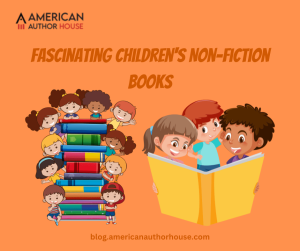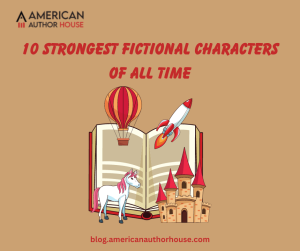
Book
Literary magazines are very important in the world of writing. These magazines give aspiring writers, experienced authors, and people who love a place to show off their work, try out new ideas, and dig deeper into the world of words. In this piece, we’ll learn more about literary magazines, including what they’re for, why they’re important, and how they affect the literary world.
WHAT IS A LITERARY MAGAZINE?
A literary magazine is a magazine that has writers’ work in it. The Spectator, which came out in London in 1711, was the first highbrow magazine. This can have more than just fiction. They can also have short stories and poems. It is a type of literary publishing because it has new works that haven’t been published elsewhere. However, it differs from traditional publishing in that it doesn’t usually have a hard deadline for submissions or pay its writers, which is often a subject of interest for those looking into self-publishing on Amazon.
They print new work and give unpublished authors a chance to get their work out there and read by others. This can be a great way for new writers to get their work out there and build a following without having publishers or editors judge their work at first glance, which could be frustrating, particularly when navigating the complexities of manuscript submission.
How literary magazines have changed over time
The first magazines were made to teach, inform, and entertain users. This idea has grown and changed over time to become what we know as magazines today. Magazines are a great place for writers to send their work so that an editor or publisher can review it and decide whether it should be released. Aspiring writers can get their work in front of people interested in reading it through this type of release, but only those with enough skill can do this successfully.
How literary magazines help bring up new talent
Some people see magazines as a way to pass the time, but others see them as a way to help young people develop their talents and imagination. This is especially true when helping young people improve their writing skills and become more confident as writers. Most of the time, the editors of these magazines are happy to give students feedback on their work so that they can get better over time.
Literary mags can also help people who want to become full-time writers in the future. Many well-known writers got their start by sending their work to these magazines, a journey detailed in narratives like how to become an eBook writer before going on to write professionally.
Exploring Different Genres in Literary Magazines
Literary journals are a great way to read works from various genres. There’s something for everyone, whether you want to read poems, short stories, essays, or even personal stories.
Poetry is one of the most common types of writing and has been around for a long time. There are many different kinds of poetry, like free verse and sonnets. There are also many kinds of poetry journals; some only print certain kinds. For example, a magazine like Poetry Foundation prints all kinds of poetry, mirroring the diverse fantasy writing prompts that inspire writers, but it also publishes an annual book called Best American Poets that has only the best new poems readers send each year.
Short stories are another type of writing that has existed for a long time. Short stories are different from other types of writing because they usually tell a full story in a short time (usually less than 10 pages). This means that each piece has to be written so that everything fits together perfectly and you don’t feel like you missed anything when you’re done reading it.
Literary Magazines and Cultural Movements
Literary journals and cultural movements have a long history of intersecting. Joseph Addison and Richard Steele founded the first literary journal, The Spectator, in 1711. The magazine’s purpose was to satirize the political culture of its day, but it also published poetry and fiction.
Later in the 18th century, Samuel Johnson launched The Rambler, which focused more on essays than satire. Both magazines were highly influential in their time — as were other early literary periodicals like The Tatler (founded in 1709), The Gentleman’s Magazine (1731), and Blackwood’s Magazine (1817).
In the 19th century, Romanticism introduced new literary journals and magazines. These included Aesthetic Papers (1830), which included works by Jane Austen, William Wordsworth and Edward Bulwer-Lytton. Other notable publications included The Bookman (1888), which helped establish the idea of “book reviewing” as an art form, and The Yellow Book (1894-95), which was known for its erotic content.
The Impact of Digital Platforms on Literary Magazines
Literary magazines are shaping the future of writing. They are at the front of the pack when it comes to publishing new and different voices, and they do this by going beyond standard methods.
The internet has given literary journals new ways to reach new readers and try out new formats. But this isn’t just about digital platforms; it’s also about how literary magazines change our ideas about what a magazine can be.
Literary magazines have always been a big part of the world of books. When they started, there was no other way to share work with others. You had to start your magazine if you wanted to be in one. Digital tools like American Author House have made it easier to start your magazine or find one you like.
Digital platforms have enabled magazines to reach more people than ever, much like how affiliates market virtual events, but they still face many problems, such as building their audiences…, finding ways to pay for them, and keeping their editorial standards high. Literary journals are changing as we speak, adapting to these changes while staying true to their goal of publishing great writing by people from all walks of life.
Why literary magazines are important for readers
Literary magazines give people a different way to enjoy reading. They put together a group of literary works so readers can learn about different points of view, styles, and voices. By looking through the pages of literary journals, readers can learn about new authors, enjoy different ways of writing, and get lost in the beauty of words. These magazines give people a place to explore literature and develop their minds, and sometimes, these explorations lead to reflections on toxic family quotes and personal growth.
The Challenges Faced by Literary Magazines
Even though creative magazines are important, they face many problems. They face a lack of money, a drop in paper readers, and difficulty adapting to digital platforms. Also, the rise of self-publishing and Amazon publisher services content platforms has made the literary scene more competitive. Still, literary journals keep doing well because they have loyal fans and a strong commitment to literary excellence.
The Future of Literary Magazines
As the literary world continues to change, so do journals. The future holds both problems and possibilities for these publications, not unlike the challenges faced by children’s typewriters in adapting to modern technology. Even though ebook writing services will remain important, print publications will always have a place. Literary journals will change to meet the needs of their readers and the needs of new technologies. This will ensure that the written word fascinates people and shapes the literary world.
Essential Aspects and Detailed Insights
| Aspect | Description | Impact |
|---|---|---|
| Historical Evolution | Evolved from early 18th-century periodicals to contemporary digital platforms. Shifted from primarily educational and satirical to diverse and inclusive literary expressions. | Shifted from primarily educational and satirical to diverse and inclusive literary expressions. |
| Talent Development | Offer emerging writers exposure and critical feedback. Nurture new talent and often launch literary careers. | Nurture new talent and often launch literary careers. |
| Genre Exploration | Feature a variety of genres, from poetry to short stories. Encourage diversity in writing and reading experiences. | Encourage diversity in writing and reading experiences. |
| Cultural Influence | Historically intertwined with cultural and literary movements. Reflect and influence societal trends and literary directions. | Reflect and influence societal trends and literary directions. |
| Digital Transformation | Transition from print to digital, expanding reach and format. Broaden audience, but also introduce challenges in monetization and audience engagement. | Broaden audience, but also introduce challenges in monetization and audience engagement. |
| Reader Engagement | Curate a diverse collection of works, offering readers a broad literary experience. Enrich readers’ understanding and appreciation of literature. | Enrich readers’ understanding and appreciation of literature. |
| Industry Challenges | Financial sustainability, competition from self-publishing, and maintaining quality. Must innovate to stay relevant and financially viable. | Must innovate to stay relevant and financially viable. |
| Future Outlook | Continual adaptation to technology and reader preferences. Likely to remain pivotal in discovering and shaping literary trends and talents. | Likely to remain pivotal in discovering and shaping literary trends and talents. |
Conclusion
Literary magazines are gateways to the wide and wonderful world of books. They allow writers to share their work, find new talent, and build literary communities, much like how to write a script for a comic enables the creation of dynamic storytelling. From the old-fashioned print magazines to the new and exciting digital platforms, these publications continue to improve the literary scene, enthrall readers, and shape the world of literature for years to come.



